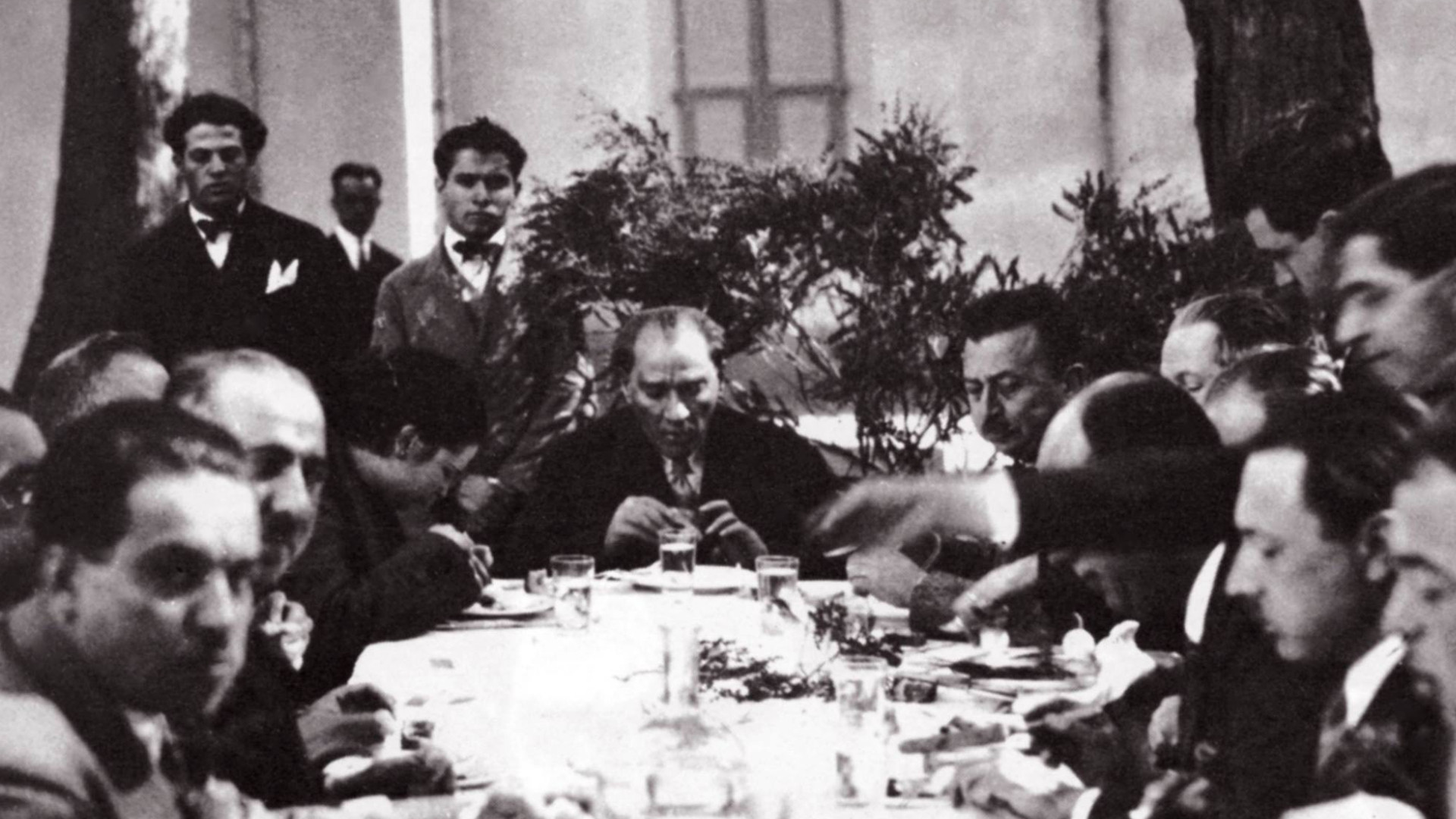A long-standing Anatolian tradition: Drinking wine
Besim F. Dellaloğlu writes: When we look at the history of wine, it is apparent that Anatolia is an important venue. In particular, the importance of wine in the Hittites and the fact that the word wine comes from the Hittite language in all Indo-European languages are enough to prove this. However, today wine is not often considered as a drink belonging to “this land”. Indeed, both wine are rakı are all traditional. They are elements of our anthropological culture.
Besim F. Dellaloğlu
The Turkish word for wine, “şarap,” is derived from the Arabic root “shrb” which refers to all alcoholic drinks. The oldest recorded use of the word in the Turkish language is in Kutadgu Bilig, which dates back to 1069. The first use in the sense used today was detected in Codex Cumanicus, which dates back 1303. The words ranging from cup to sherbet and syrup, “maşrapa, meşrep, meşrubat, şerbet, şurup,” which are widely used in Turkish, come from the same root. Another word that means drink in Turkish, “mey,” comes from “may,” which refers to “fermented drink, wine” in Persian..
Modern-day Georgia is usually considered as the place where wine production began. Archaeological studies show that the history of wine dates back to 6000 - 5800 BC. Wine production spread from this region to Anatolia and Iran, and then to other regions. Wine was detected in Iran in 5000 BC and in Sicily in 4000 BC. The oldest winery ever identified is located in the Areni-1 cave within the borders of Armenia. It is thought that Phoenicians played a significant role in the spread of wine culture to Europe.
Wine became an important cultural phenomenon in Hittite and ancient Greek times. It is known that wine was called “Vino” in the Hittite language and that the word for wine in all Latin languages it derived from it. There is no need to mention the place of wine in Greek and Roman mythology. The first holy book to mention wine in the scriptures of celestial religions is the Torah. The Torah states, “But Noah was a farmer, and he cultivated the land, set up a vineyard, and made wine.”
The foundations of the wine craft/technology, which remains valid to this day, began to develop in Europe in the sixteenth century.
In this sense, the spread of barreling and bottling began during this period. In Anatolia, vine culture has always been widespread. Today, 40 percent of the grapes produced in Turkey are used as fresh fruit, 35 percent for drying and 23 percent of products are used to make molasses, pestle and wort. Only 2 percent is processed as wine. However, the proportion of grapes processed as wine in Thrace and Central Anatolia regions can go up to 40 percent. Out of all alcoholic beverages consumed in Turkey, 5 percent is wine.
When we look at the history of wine, it is apparent that Anatolia is an important venue. In particular, the importance of wine in the Hittites and the fact that the word wine comes from the Hittite language in all Indo-European languages are enough to prove this. However, today wine is not often considered as a drink belonging to “this land” or “this region.” Wine is often considered as one of the symbols of the Western way of life. Moreover, this agreement applies to both those who consume wine and those who do not. In the positive sense for the former group and in the negative sense for the latter.
For instance, raki is a much more “domestic” drink than wine from a social perspective. Perhaps it should be emphasized again that this interpretation applies to both drinkers and non-drinkers. When it comes to social class, wine is a drink consumed by higher layers of society than raki.
From a historical perspective, beer, raki and wine are all traditional. And in this sense, they are elements of anthropological culture. I use anthropological culture here in the sense of the culture we were born into, which we did not choose. In Europe, for example, in France, wine is never a symbol of modernity or civilization. People there perceive wine as an indispensable part of the culture in which they were born. Habits are primarily cultural. Therefore, if DNA is genetic in biological terms, habits are cultural genetics. This is the framework how the average French person relates to wine.
In modernization societies such as Turkey, modernity and civilization are both something that were made aware to us apart from their natural habitat. They were assumed that they should be taken from outside. Or they were qualities that should be adopted. Civilization was considered not as something that needs to be generated or built. It was thought of as a state that needs to be transferred, that needs to be evolved into quickly. For such a mindset, the embodiment of civilization was inevitable. This is so because in this mindset, civilization was perceived primarily as form, not content.
Civilization, on the other hand, is not free from anthropological culture. It has never been so. Moreover, it is only natural that the anthropological cultures of the societies that generate civilization have more representation in the cultural rainbow of civilization. In order to be civilized, the ballot box, democracy, human rights, etc. are essential. But drinking wine is not. Wine is only a part of the anthropological cultures of those societies that contribute, with their positive and negative aspects, more to the formation of civilization.
In modernization societies that have not contributed much to the formation of civilization, essentials of civilization and anthropological cultural elements are often confused. Sometimes even anthropological cultural colors have their way of overshadowing essentials. Considering wine as a symbol of civilization, and perceiving it as a sign of Western admiration, is in fact two sides of the same medal. And both are typical modernization syndromes.
Alcoholic drinks and drinking alcohol do not have anything solely to do with being civilized or not. It is purely cultural that one of the available drinking options contains more symbolic meanings in this regard than others. Ultimately, drinking or not drinking is a personal choice. The fact that an individual choice becomes a political issue, that it becomes the topic of a law or a regulation and prohibition of it is contrary to the essence of the idea of civilization.

 AKP’s two-decade-long battle against alcoholWorld
AKP’s two-decade-long battle against alcoholWorld AKP bans alcohol sales to ‘curb pandemic’World
AKP bans alcohol sales to ‘curb pandemic’World